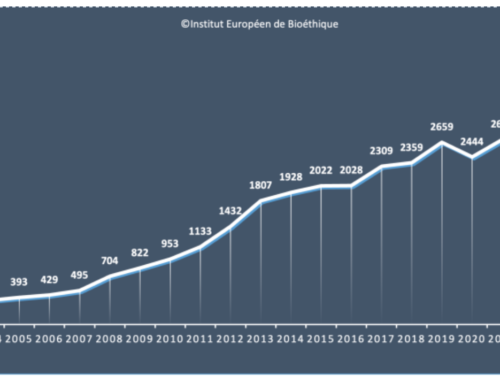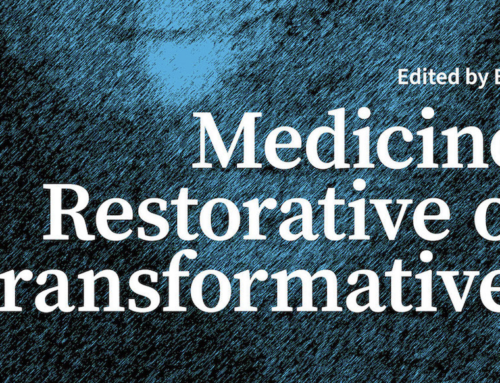World Medical Association – Forthcoming WMA Council meeting April 2019 and proposal regarding policy change relating to euthanasia and physician-assisted dying; Response of the World Federation of Catholic Medical Association FIAMC.
This statements was published earlier by the Catholic Medical Association of the United Kingdom and had been adopted by the presidency of the World Federation of CMA’s (FIAMC), Prof. Dr. Bernard Ars, as FIAMC statement.
The World Medical Association (WMA) was founded in 1947, in the aftermath of World Ward II and the subsequent Nuremberg Trials. At that time, the role of doctors in the participation of crimes against humanity had come under the spotlight. The crimes committed and condemned included experimentation on human subjects without consent, the torture, inhumane treatment and murder of civilians and prisoners and participation in the infamous Nazi Euthanasia Programme.
After the initial WMA formation, the Declaration of Geneva was formulated by the Association and approved by its General Assembly in Geneva in September 1948. It was considered a modern version of the traditional Hippocratic Oath and indeed was written in the format of a solemn Oath, ending with the declaration “I make these promises solemnly, freely and upon my honor”.
The Oath begins with the words “At the time of being admitted as a member of the medical profession: I solemnly pledge myself to consecrate my life to the service of humanity.” Of particular note and relevance, the eighth pledge in the original Declaration read “I will maintain the utmost respect for human life from the time of conception; even under threat, I will not use my medical knowledge contrary to the laws of humanity”. In October 1949, at the third General Assembly held in London, the Declaration of Geneva was reiterated in the International Code of Medical Ethics by the declaration that “a doctor must observe the principles of the Declaration of Geneva approved by the World Medical Association”.
Even after a minor amendment relating to maintaining patient confidentiality after a patient’s death, the revised Oath in August 1968 still contained the pledge that the doctor would maintain the utmost respect for human life from the moment of conception. This promise was made in the same year that the Abortion Act of 1967 came into force in the UK.
It was not until the next revision in October 1983 that the Declaration of Geneva omitted any pledge to protect human life from conception. The revised version from the 35th World Medical Assembly in Venice included the watered-down pledge that “I will maintain the utmost respect for human life from its beginning even under threat and I will not use my medical knowledge contrary to the laws of humanity”. This position was maintained with the next revision published after the 46th WMA General Assembly meeting in Stockholm in September 1994.
A further revision of the Declaration was approved at the 170th Council Session of the WMA in May 2005 at the organisation’s headquarters in Divonne-les-Bains, France. By that stage, the original promise to respect human life from conception was long forgotten as the accepted wording in that section of the Declaration now became “I will maintain the utmost respect for human life”. This aspect of the current Declaration was further approved most recently at the 68th General Assembly in Chicago in October 2017. It is now known as “The Physician’s Pledge”.
By omitting, in the later versions of the Declaration of Geneva, any mention of respecting human life from conception or even from the more ambiguous “from its beginning”, the WMA is, of course, giving approval to the practice of abortion, now carried out on a widespread basis throughout the world by people who continue to call themselves “doctors”. A more consistent and ethical approach would have been to continue with the position that human life was worthy of the utmost respect from the moment of conception and that anybody entering the medical profession, and wishing to be recognised as a physician, must uphold that tradition. The practice of abortion should have remained condemned as a crime against humanity and an act of professional misconduct just as it was considered in 1947 and also as it was considered at the time of Hippocrates in the fourth or fifth century BC (“I will not give to a woman a pessary to cause abortion”).
A solemn Oath is meant to be sacred, unchanging, eternal. Changing the wording of an Oath to suit changing political ideas and changing fashions renders the Oath meaningless and greatly discredits the organisation that claims to abide by it. It brings the organisation and its members into disrepute. It is difficult to take the World Medical Association and its empty promises seriously at this stage of its existence despite the claim that it represents ten million doctors worldwide. Yet the organisation is taken seriously by many in political power.
It is another cause for major concern that some factions within the WMA are attempting to soften the Association’s longstanding opposition to euthanasia, even though it was originally founded on the principle that euthanasia and other similar atrocities must never be allowed to happen again and that physicians must never collaborate with forces that seek to advocate euthanasia programmes. A motion was brought to the General Assembly meeting in Reykjavik, Iceland in October 2018 by delegations from Canada and The Netherlands, calling on the WMA to adopt a neutral position on euthanasia and / or assisted suicide as opposed to the current position of outright opposition. The motion was fortunately withdrawn due to a perceived lack of international support. If passed, it would not be long before enthusiastic support for euthanasia would become the norm if lessons are to be learned from the abandonment of “the utmost respect for human life from conception” and the gradual widespread acceptance of abortion.
We now learn that an alternative motion is to be put forward for the forthcoming WMA Council meeting in Santiago, due to take place April 25th to 27th this year. The current official position of the WMA on these issues is as follows:
“Euthanasia, that is the act of deliberately ending the life of a patient, even at the patient’s own request or at the request of close relatives, is unethical. This does not prevent the physician from respecting the desire of a patient to allow the natural process of death to follow its course in the terminal phase of sickness.” And, in relation to physician-assisted dying,
“Physician-assisted suicide, like euthanasia, is unethical and must be condemned by the medical profession. Where the assistance of the physician is intentionally and deliberately directed at enabling an individual to end his or her own life, the physician acts unethically. However the right to decline medical treatment is a basic right of the patient and the physician does not act unethically even if respecting such a wish results in the death of the patient.”
The proposed amendment reads “The World Medical Association is opposed to euthanasia and physician-assisted dying. Euthanasia is defined as the voluntary act of deliberately ending the life of a person at his or her own request. Physician-assisted dying refers to cases in which a physician deliberately enables a patient to end his or her own life by prescribing or providing medical substances whose sole intent is to cause death. It is not the task of the physician to participate in euthanasia or deliberately enable a patient to end his or her own life. No physician should be forced to participate in euthanasia or assisted dying, nor should any physician be obliged to make referral decisions to this end. However, the right to decline medical treatment is a basic right of the patient and the physician does not act unethically even if respecting such a wish results in the death of the patient”.
While this new proposed wording seems quite benign as it clearly reiterates that the WMA “is opposed to euthanasia and physician-assisted dying” it nevertheless represents a definite softening in this opposition. It is very likely that this softened approach is designed to appease the Canadian Medical Association whose leadership made the decision to resign from the WMA in 2018, allegedly due to ethical concerns over plagiarism in the inaugural speech made by the new WMA President. It is possible, however, that the Canadian resignation may have been related to frustration or anger over the WMA not supporting its position on euthanasia. It could represent an effort by Canada to bully the WMA into gradually accepting that euthanasia may not be so abhorrent after all.
It is particularly surprising and perhaps sad that the proposed amendment is being brought forward by representatives from the German Medical Association. Of all the nations affiliated to the WMA, the last one to consider any move that could lead to acceptance that euthanasia or physician-assisted dying is anything other than unethical should be Germany, considering the lessons that should have been learned seventy odd years ago.
World Federation of Catholic Medical Association (FIAMC) is of the firm opinion that maintaining current opposition to and outright condemnation of the practices of euthanasia and physician-assisted dying is the only ethical position that the World Medical Association should pursue. There is no need to change current policy relating to these issues.








